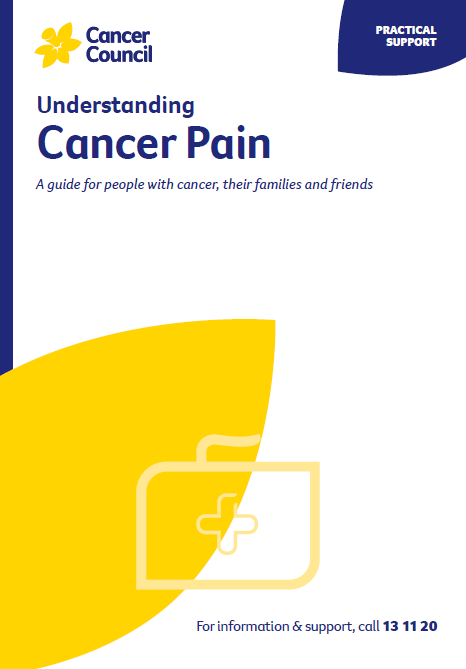- Home
- About Cancer
- Managing side effects
- Sex, intimacy and cancer
- Overcoming specific challenges
- Pain
After surgery, you may feel sore for several weeks, or sometimes longer. It may be uncomfortable to be touched or hugged, especially if your wounds are still healing or the area around a scar is painful.
Pain can reduce your pleasure or interest in sex, and make it harder to reach orgasm. It may make some positions uncomfortable. Some pain medicines may also make you feel sleepy or tired, which can affect your sex drive.
Learn more about:
Painful intercourse
In the female body
It’s important not to push through pain during sex. This can often make things worse. In the female body, pelvic or abdominal surgery, radiation therapy or treatment that affects hormones can make the vagina smaller or less moist, which can make intercourse painful.
Some people experience vaginismus, where the vagina muscles tighten during or before penetration. This is an unconscious reaction, often caused by fear that intercourse will be painful.
Vulvodynia is another condition that causes pain or a burning feeling along vaginal walls during sexual intercourse, often due to dryness or other side effects from treatments.
Ask your health care team for a referral to a qualified pelvic health physiotherapist. They can teach you ways to relax your muscles during intercourse.
In the male body
Scar tissue in the penis after surgery can cause pain or bleeding, but these usually settle down in time. Surgery or radiation therapy can irritate the prostate or urethra, which can cause painful orgasms. Anal sex can be painful after radiation treatment for prostate or anal cancer. Consider other ways to be intimate, such as oral sex.
Learn more about pain and cancer or listen to our podcast on managing pain below.
Tips for managing pain
Managing pain |
Making penetrative sex more comfortable |
|
|
After my operation I had quite a bit of pain. I would either take the pain medication or try and get into a comfortable position with the pillows around me.
Annmaree
→ READ MORE: Managing incontinence
Podcast: Managing Cancer Pain
Listen to more episodes from our podcast for people affected by cancer
More resources
Dr Michael Lowy, Sexual Health Physician, Sydney Men’s Health, NSW; Gregory Bock, Clinical Nurse Consultant – Oncology Coordinator, Urology Cancer Nurse Coordination Service, Cancer Network WA; Anita Brown-Major, Occupational Therapist and Director, Thrive Rehab, VIC; Helena Green, Psychosexual Therapist and Clinical Sexologist, Insync for Life Psychology and Women Centre, WA; Dr Lisa Mackenzie, Clinical Psychologist, HNE Centre for Gynaecological Cancer, Hunter New England Local Health District, NSW; Dr Tonia Mezzini, Sexual Health Physician, East Obstetrics and Gynaecology, SA; Sophie Otto, Prostate Cancer Nurse Consultant – Central Adelaide Local Health Network (CALHN), SA; Giovanna Raco, 13 11 20 Consultant, Cancer Council Victoria; Kath Schubach, Urology Nurse Practitioner, VIC; Emily Stevens, Gynaecology Oncology Clinical Nurse Consultant, Southern Adelaide Local Health Network, Flinders Medical Centre, SA; Anja Vukovic, Clinical Specialist Social Worker, Gynaecological Oncology, Westmead Hospital, NSW; Alan White, Consumer; Kathleen Wilkins, Consumer; Merran Williams, Consumer.
View the Cancer Council NSW editorial policy.
View all publications or call 13 11 20 for free printed copies.

